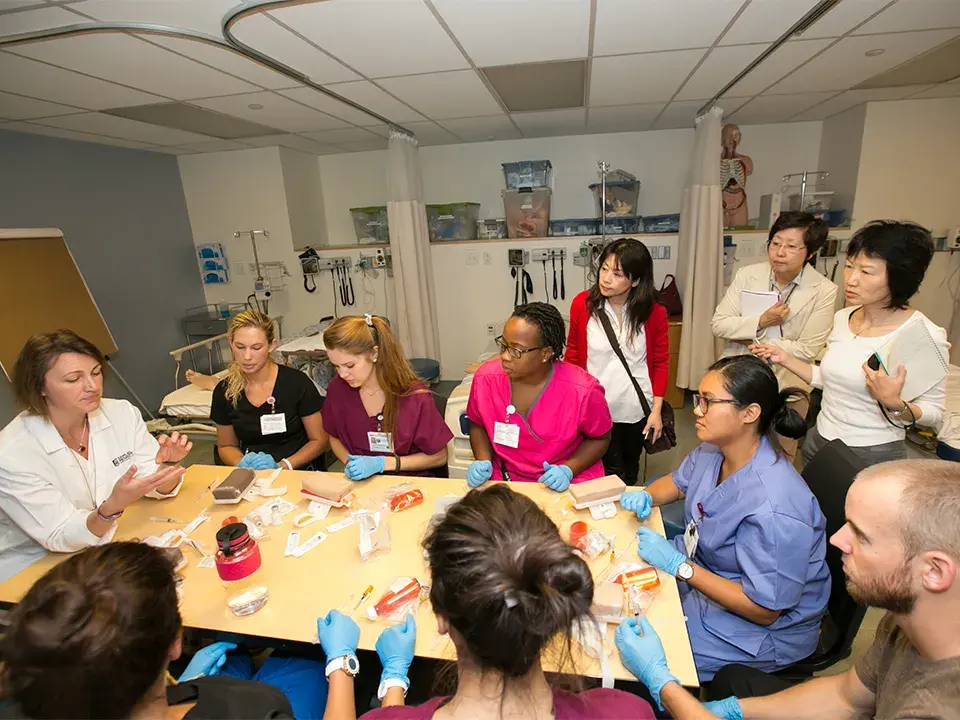Exchange Program Teaches Cross-Cultural Lessons

Marking the fourth year of a trans-Pacific exchange program, Japanese nursing students visited Samuel Merritt University in March while SMU students prepare for their own trip to Japan in June.
During their 10-day visit, eight undergraduate nursing students and three faculty members from Seirei Christopher University learned American teaching methods from SMU faculty members and about the role of nursing in U.S. healthcare by spending time at Bay Area hospitals and healthcare facilities.
The students were particularly enthusiastic about their visit to SMU’s Health Sciences Simulation Center, where they studied the cardiopulmonary system and did hands-on practice with the center’s computerized manikins.
“We have not experienced this advanced level of simulation before,” said student Ikumi Hasegawa. “And it's rare for nursing students to face critical or acute situations as we did in the simulation lab. I learned how to think and act under pressure.”
Hasegawa also said the diversity at SMU surprised her because her cohort in Japan is from the same age group with similar backgrounds.
“At SMU, students and teachers are trying to respect different values and opinions to learn from each other,” she said, adding that the gender-neutral bathrooms were also a revelation.
The SMU School of Nursing’s exchange program with Seirei Christopher, a health sciences university in Hamamatsu, Japan, was launched in 2014. Assistant Professor H. Paul Smith, PhD, who helps organize the program, said it is an incredible opportunity for the students to learn about nursing in another culture.
“Their experiences have been profound,” said Smith.
When 10 SMU students arrive in Japan in June, they will learn about eldercare, disaster preparedness, hospice care, and maternity nursing.
Both the Japanese and the American students also enjoy sightseeing and the cross-cultural experience of staying with host families.
“I really enjoyed spending time with SMU students and my host family because I usually don't have a chance to see and talk to people outside school, not to mention ones from other countries,” said student Yuna Konishi.


